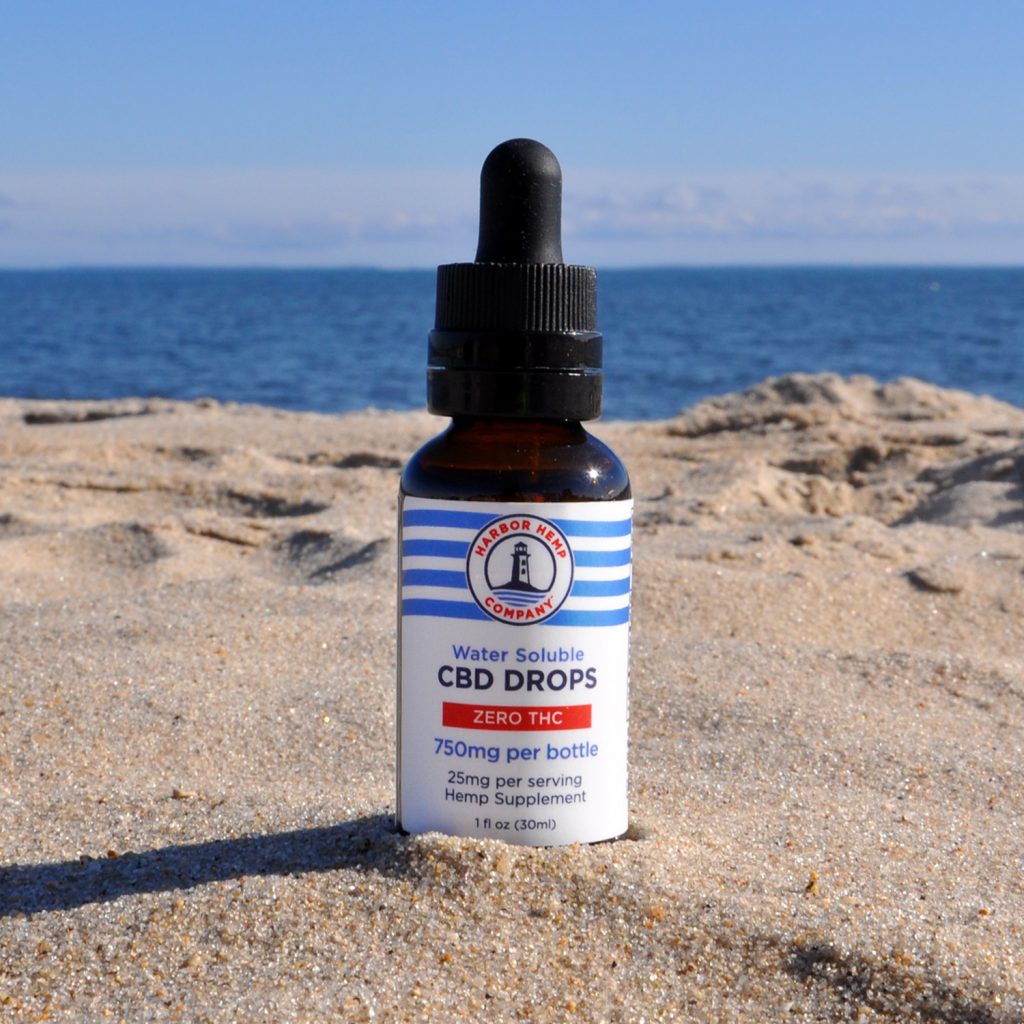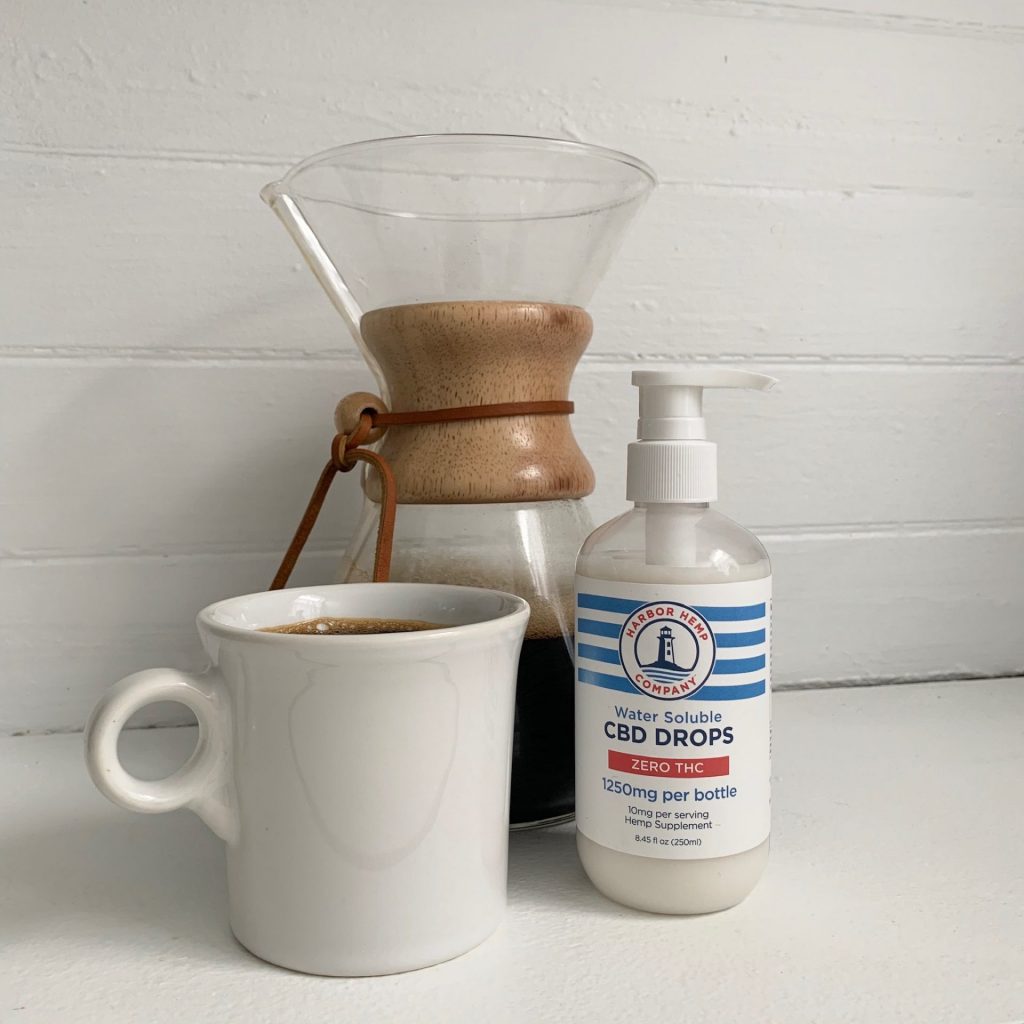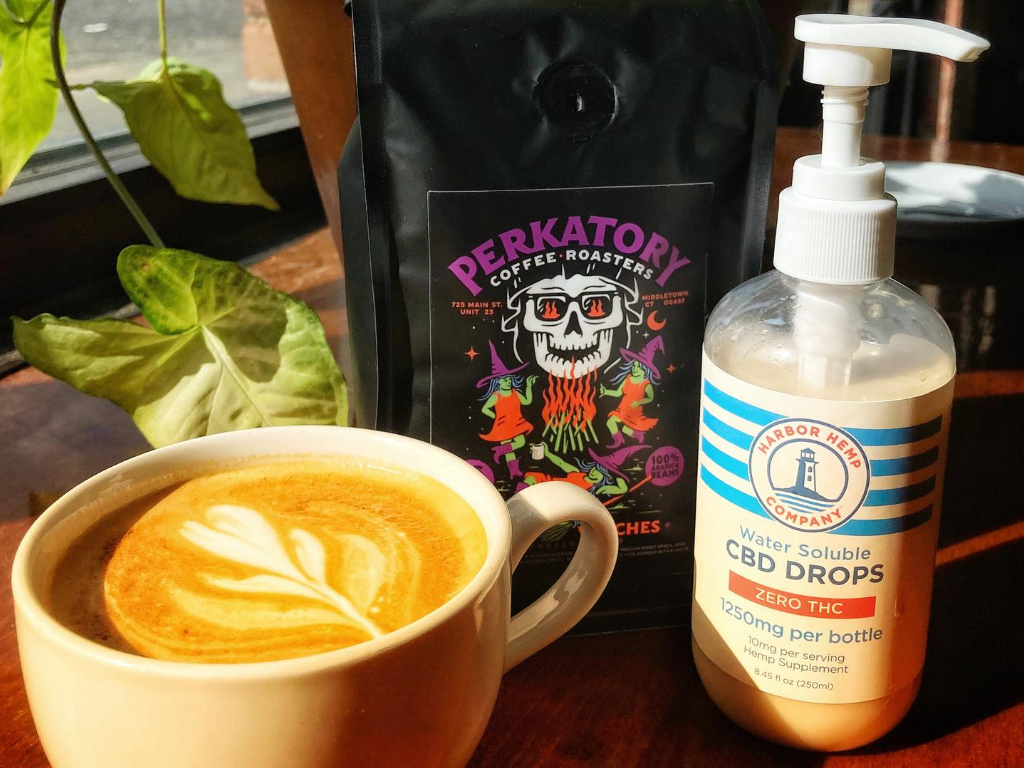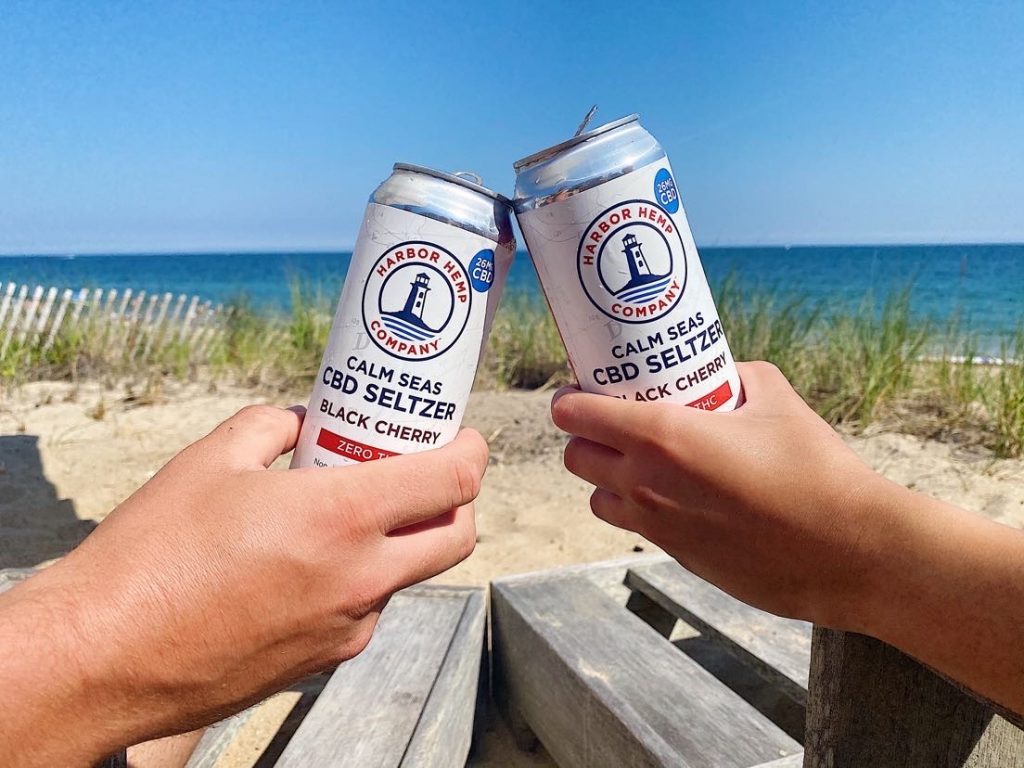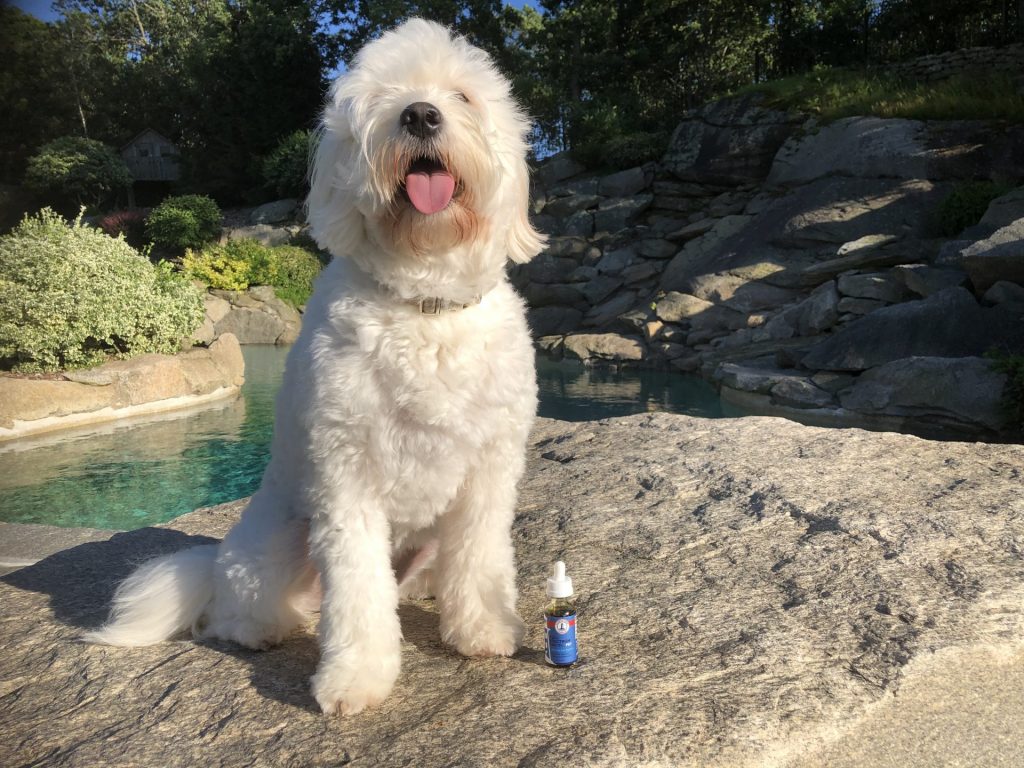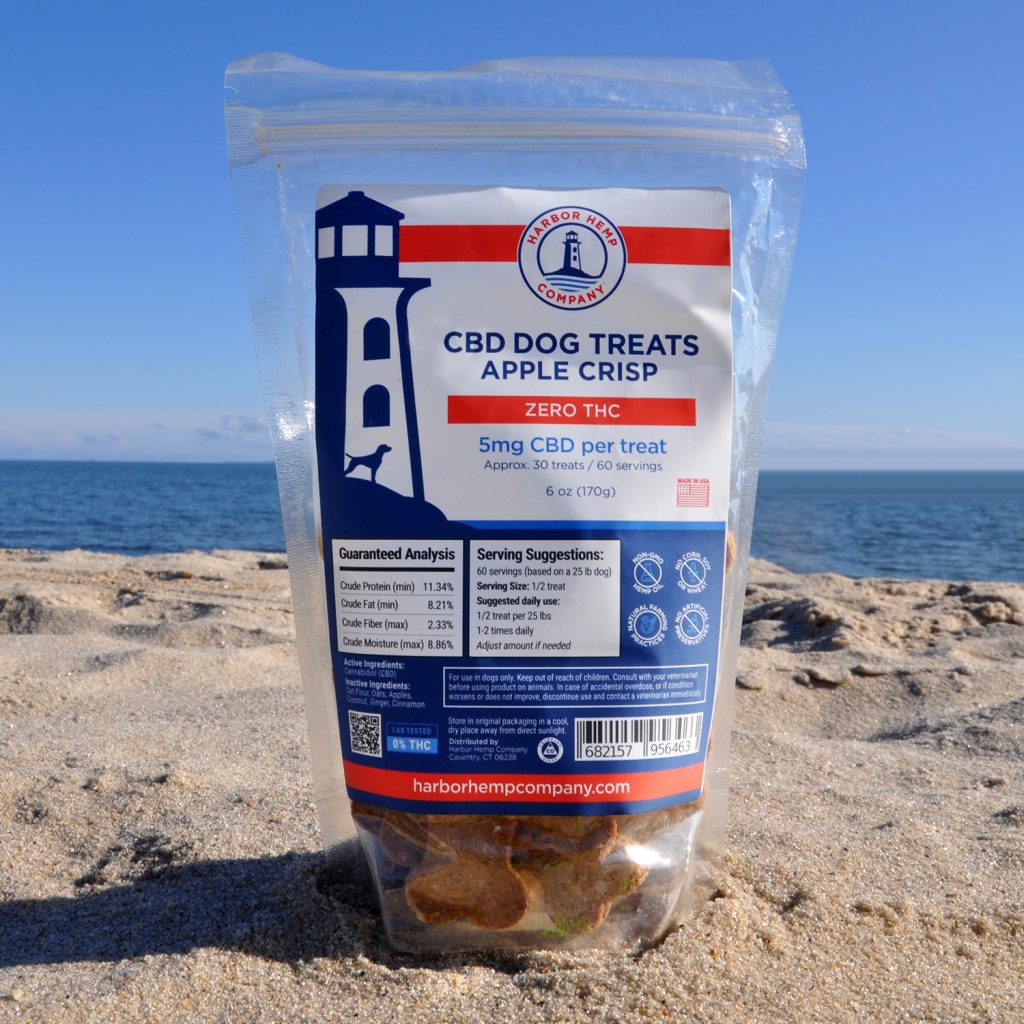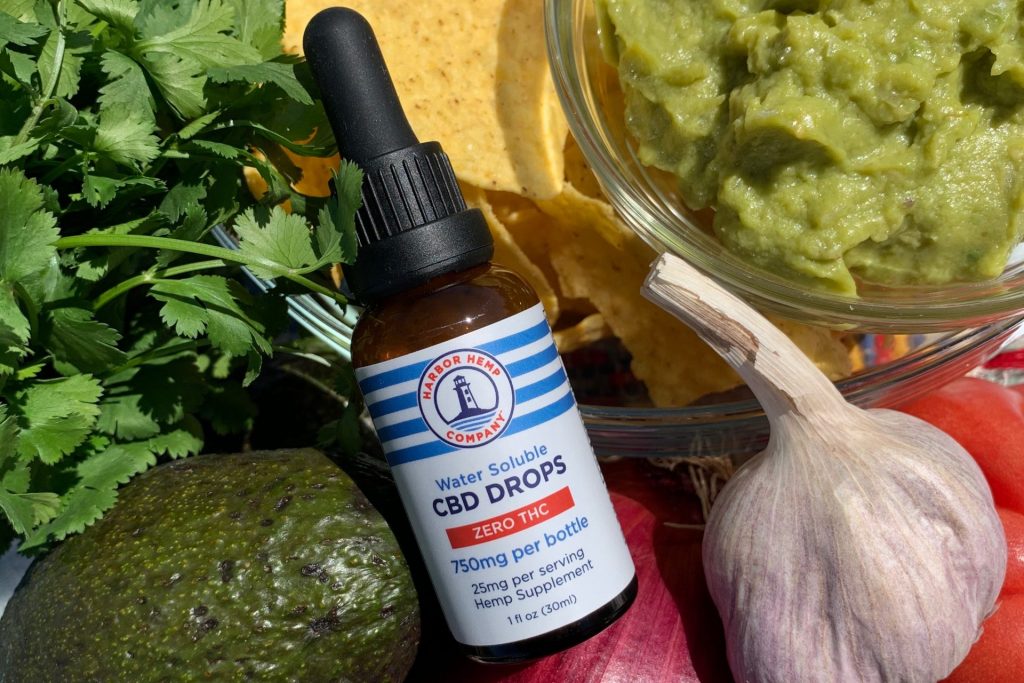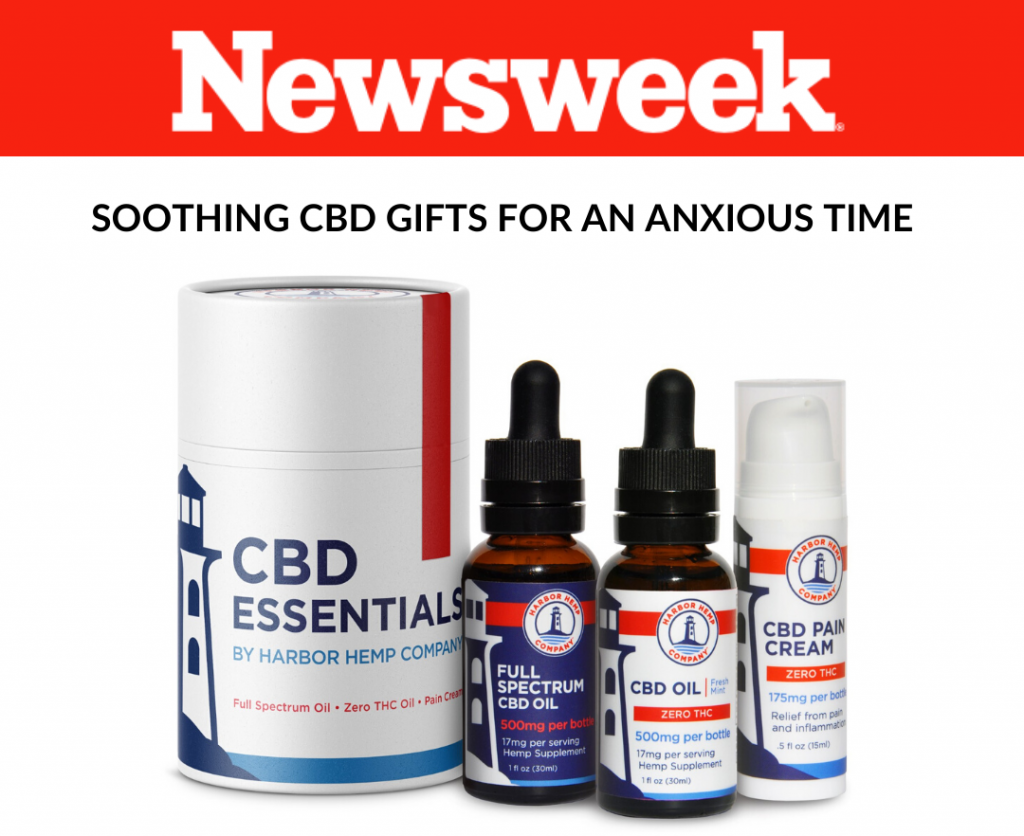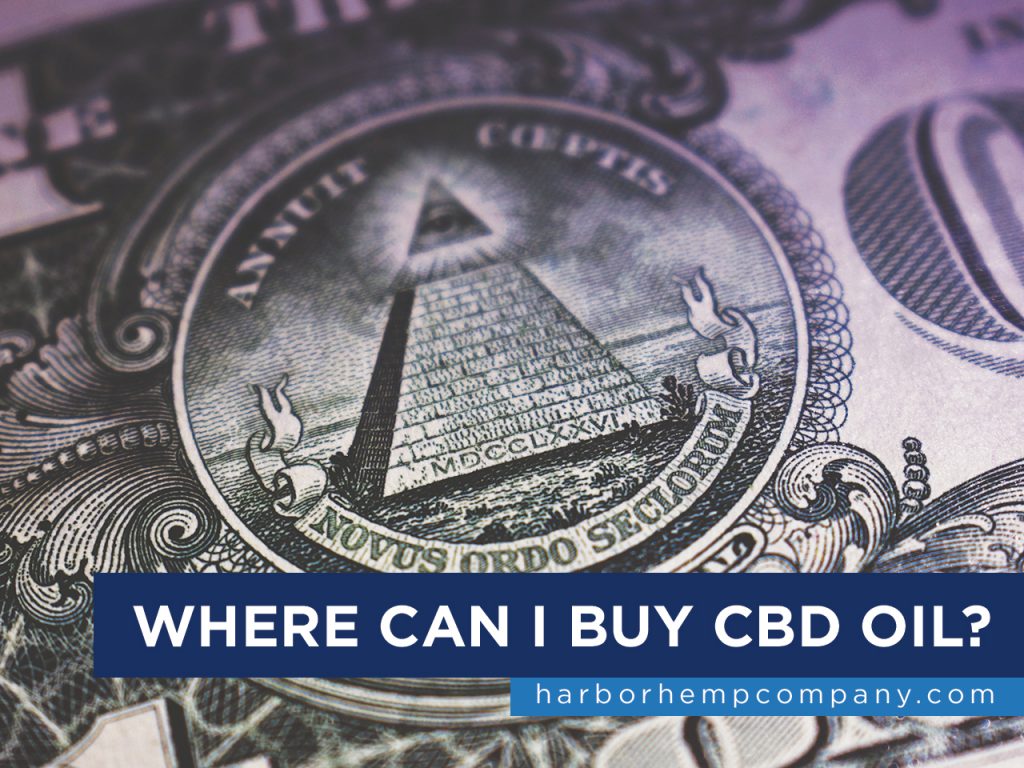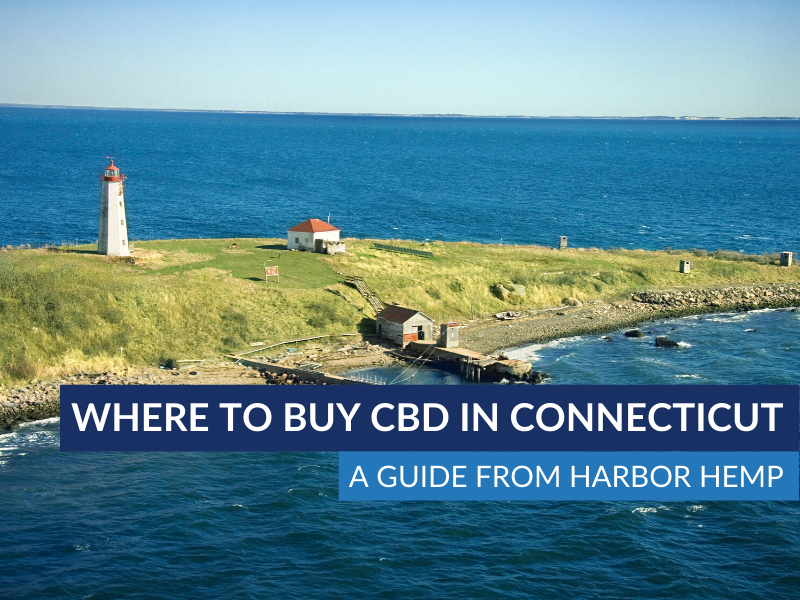CBD Products
Recipe: Pumpkin Chill CBD-Infused Latte by Perkatory
PSL Season is officially here! AKA, the return of Pumpkin Spice Lattes! To celebrate, we’ve partnered with our friends at Perkatory Coffee Roasters to create the perfect PSL. Dubbed the Pumpkin Chill, this CBD-Infused Latte is made with Perkatory’s Three Witches Espresso and our signature Pump Top Water Soluble CBD Drops – packing 10mg of THC-free CBD per serving!
If you find yourself in Connecticut during PSL Season, stop by either one of Perkatory’s shops, located at 725 Main Street in Middletown and 168 Center Street in Southington, and ask for the Pumpkin Chill. Or try whipping up a few Pumpkin Chills at home!
How to make the Perkatory Pumpkin Chill CBD-Infused Latte
Ingredients:
- 3 ounces pumpkin spice syrup
- Single shot of Perkatory’s Three Witches Espresso
- 3/4 cup steam milk
- Smidge of cinnamon
- 1 pump (10mg) Pump Top Water Soluble CBD Drops
Directions:
Combine one shot of espresso with CBD-infused steamed milk and pumpkin spice syrup. Sprinkle with cinnamon.
Need help infusing your recipes with CBD?
Our CBD specialists are here to help! Just drop us a line. We’ll be glad to help you figure out how much CBD you need to add to your favorite recipes.
Try Harbor Hemp’s Water Soluble CBD Drops
Harbor Hemp Launches Non-alcoholic CBD-infused Seltzer
PRESS RELEASE
Glen and David Boggini of Harbor Hemp Company today announced the addition of Calm Seas Seltzer to their burgeoning line of CBD products. The non-alcoholic black cherry seltzer contains 26mg per 16 ounce can and retails for $16 per four pack.
The Calm Seas CBD-infused seltzer was developed in Harbor Hemp Company’s Connecticut cGMP certified headquarters, which, is one of Connecticut’s first licensed CBD manufacturing facilities. It’s made with a proprietary water-soluble CBD nanoemulsion, leveraging 80 years of family business experience to yield the highest quality non-alcoholic seltzer on the market.
“Our customers have been requesting a non-alcoholic CBD-infused seltzer and we were ready to answer that call with a great tasting beverage with 26 mg of CBD per can.” said Glen, co-owner of Harbor Hemp Company. His brother David added, “Leveraging our experiences with beverages, our grandfather taught us to always source the best ingredients and that’s why we only use hemp that is US grown, non-GMO and pesticide free.”
Harbor Hemp Company created the seltzer after shifting focus during the pandemic to manufacture hand sanitizer that was initially donated to local first responders. Now, the 80% alcohol sanitizer is available for purchase online and at select retail locations for consumers and businesses.
Cannabidiol, aka CBD, is one of over a hundred naturally occurring cannabinoids found in industrial hemp plants. It is legal, non-intoxicating and interacts with your body’s endocannabinoid system. When you use CBD, it interacts with the receptors found in your endocannabinoid system and may help promote homeostasis along with general health and wellness.
The Harbor Hemp Company line of products features: Full Spectrum CBD Oil in 1000mg and 500mg strengths; Full Spectrum Soft Gels; Full Spectrum Pet CBD Oil; Zero THC Pain Cream; Zero THC Water Soluble Drops; Zero THC CBD Infused Massage Oil; and Zero THC dog treats. Prices range from $16.00 to $180.00 and can be purchased on HarborHempCompany.com. Harbor Hemp’s Connecticut CBD products are also available at select wellness stores, specialty retailers and golf pro shops across New England. See list of retailers here.
Help Your Dog Stay Calm this Fourth of July!
Fourth of July fireworks are a wonderful way to celebrate Independence Day, but our furry friends don’t always agree.
Did you know that your four-legged friends can benefit from CBD oil, too? Our Full Spectrum Pet CBD Oil is specially formulated with cold-pressed hemp seed oil designed to ease digestion. And with 5mg of CBD per serving, this 150mg pet tincture is great for dogs or cats.
Or, try our dog-approved Apple Crisp CBD Dog Treats. Made in small batches with real apples, your dog will enjoy this yummy and convenient way to get his CBD. Each treat has 5mg of CBD, making them perfect for daily or occasional use.
Try these pet-friendly CBD products
Have questions about Harbor Hemp or CBD?
Our team of CBD specialists is always here to answer your questions about our line of small batch CBD products or CBD. Just drop us a line.
Recipe: CBD-infused Guacamole
Happy Cinco de Mayo! Infused with Harbor Hemp’s Water Soluble CBD Drops, this twist on guacamole is a tasty way to get your daily dose of CBD.
Formulated with 99% pure CBD isolate, our Water Soluble CBD Drops mix easily with any food or beverage. And each dropper contains 25mg of CBD per serving.
How to make a CBD-infused Guacamole
Ingredients:
- 3 tablespoons chopped onion
- 2 cloves of garlic finely chopped
- ½ teaspoon minced Jalapeño, if desired
- 1 ½ teaspoons finely chopped cilantro leaves
- ½ teaspoon sea salt, or more, to taste
- ½ teaspoon lime juice
- 1 Dropper (25mg) Harbor Hemp Water Soluble CBD Drops
- 1 small heirloom tomato
- 1 ripe Hass avocado
Directions:
Gently mix together and serve with tortilla chips or raw veggies.
Need help infusing your recipes with CBD?
Our CBD specialists are here to help! Just drop us a line. We’ll be glad to help you figure out how much CBD you need to add to your favorite recipes.
Try Harbor Hemp’s Water Soluble CBD Drops

Newsweek Names Harbor Hemp a Top CBD Gift
A big thank you to Newsweek for including Harbor Hemp in their recent roundup of Soothing CBD Gifts for an Anxious Time.
According to the article by leading lifestyle expert, Trae Bodge, “The right CBD product could help you or a loved one face these high-stress times more calmly, and a CBD skincare product could help soothe stress-related skin issues.”
Newsweek tested over 100 CBD products, and we’re thrilled to have Harbor Hemp’s newest product, the CBD Essentials Gift Set, featured as a “…timely treat for yourself or someone from whom you are social distancing.”
Recipe: The Classic Arnold Palmer with a CBD-Infused Twist
While the Arnold Palmer Invitational is taking place in Florida this week and the days become longer and warmer here in New England, it only seems appropriate to share our recipe for The King’s favorite refresher, the Classic Arnold Palmer. 🍋
Infused with Harbor Hemp’s Water Soluble CBD Drops, this twist on a classic is a refreshing and fun way to get your daily dose of CBD.
Formulated with 99% pure CBD isolate, our Water Soluble CBD Drops mix easily with any food or beverage. And each dropper contains 25mg of CBD per serving.
Mix up a few glasses of these tasty, CBD-infused Arnold Palmers, relax and enjoy every sip!
How to make a CBD-infused Arnold Palmer
Ingredients:
- Unsweetened black tea
- Freshly squeezed lemonade
- Ice cubes
- Harbor Hemp Water Soluble CBD Drops
Directions:
- Fill highball glass with ice cubes
- Fill glass 3/4 with unsweetened black tea
- Top off with fresh squeezed lemonade
- Add 1mL dropper (25mg) Harbor Hemp Water Soluble CBD
- Stir and garnish with a lemon wheel
Need help infusing your recipes with CBD?
Our CBD specialists are here to help! Just drop us a line. We’ll be glad to help you figure out how much CBD you need to add to your favorite recipes.
Try Harbor Hemp’s Water Soluble CBD Drops

Where can I buy CBD oil? The 3 best options to buy quality CBD products
Curious about trying CBD? You’re not alone. With the passing of the 2018 Farm Bill, the hemp-derived CBD industry has become a booming industry. And experts at the Brightfield Group, a leading market research firm, are calling CBD “the next healthcare phenomenon” and predicting that the hemp-derived CBD market will reach $22 billion by 2020.
But what exactly is hemp-derived CBD and where are the safest places to buy it?
What is CBD?
CBD, or Cannabidiol, is one of over a hundred naturally-occurring cannabinoids found in industrial help plants. Unlike THC which can cause users to “get high,” CBD is non-intoxicating. And it is believed that CBD interacts with receptors in your body’s endocannabinoid system to help promote general health and wellness.
Is it legal to buy CBD?
Yes. CBD derived from industrial hemp is federally legal. However, it’s a good idea to check your local and state laws for specifics. The laws are different in the UK which is why you might want to learn more about CBD and drug tests in the UK by exploring some more articles online.
3 best places to buy high-quality CBD
With the boom of CBD, it seems you can find CBD being sold everywhere, from health food stores to spas and even gas stations. You can even shop for CBD online from the comfort of your own home. But where are the safest places to buy CBD?
Speciality Stores
If you want to shop local for your CBD, your best bet is to check out the “mom and pop” stores in your area. From natural grocers to yoga studios, golf pro shops and smoke shops (aka head shops), many speciality retailers are now carrying CBD. As an added bonus, particularly for first time CBD users, brick and mortar stores often have trained staff that can help you pick out the best CBD products for your personal needs and may even have some CBD samples for you to try before you buy.
Dispensaries
If you live in a state where medicinal marijuana is legalized, you may be able to purchase CBD at a dispensary. Dispensaries are regulated by the government and typically sell CBD derived from the marijuana strain of the cannabis plant rather than the federally-legal hemp-derived CBD. Keep in mind, this type of CBD often has higher levels of THC and you may need a prescription to purchase it.
Online
Shopping online is one of the most convenient ways to purchase many kinds of CBD products, including tinctures, topicals and edibles. Companies like Harbor Hemp, and other reputable CBD brands, generally sell their full line of products online and will ship directly to your house. In the UK? Check out CBD Queen for a more local option.
Be sure to look for brands that have their third-party lab results and product ingredients easily accessible on their site, along with an easy way to contact customer service with any questions. Also, be sure to watch out for brands that market their products as “hemp oil” or “hemp seed oil” with no mention of CBD or Cannabidiol on their labeling or ingredients list. These products often contain little to no CBD.
Shopping Online with Harbor Hemp Company
Whether you’re looking for Full Spectrum or Zero THC products, Harbor Hemp Company is a family-run wellness company that offers a variety of small batch, New England-made CBD products.
When you purchase your CBD directly from Harbor Hemp Company, or from one of our trusted retailers, you know that you’re buying tinctures, topicals and pet products that are made with US-grown, non-GMO and pesticide-free hemp-derived CBD in a cGMP certified, licensed hemp manufacturing facility.
And you can check the potency and purity of all Harbor Hemp products by viewing the batch test results in our Lab Results database, on every product page or even by scanning the QR code on our product labels.
Still have questions about where to buy CBD?
Our team of CBD specialists is always here to answer your questions about Harbor Hemp CBD products or CBD. Just drop us a line.
A guide to buying CBD in Connecticut
CBD oil, CBD topicals and other CBD products have become popular in Connecticut in recent years. In this article, we’ll take a closer look at Connecticut’s hemp regulations and where you can buy CBD in Connecticut.
Is CBD legal in Connecticut?*
Since 2015, with the passing of House Bill No. 5780, CBD products have been available for purchase in the state of Connecticut. According to the bill, Connecticut does not classify hemp-derived CBD as a controlled substance as long as the hemp doesn’t contain more than 0.3% THC.
And in 2017, the passing of Senate Bill No. 603 opened up even more doors for the hemp industry in Connecticut, allowing for CBD products made from hemp to be manufactured in the state. If you want examples of what may be made, look at this website. It also helped kick off the state’s pilot hemp growing program.
Is hemp legal to grow in Connecticut?
Yes. It is legal to grow hemp in Connecticut. However, if you’re interested in growing hemp in Connecticut, you’ll need to apply for a grower’s license from Connecticut’s Department of Agriculture before getting started.
Is marijuana legal in Connecticut?
Medical marijuana is legal in the state of Connecticut, but only those who are licensed by the state’s medical marijuana program are legally allowed to produce, manufacture or sell products that have more than 0.3% THC. Products containing marijuana-derived CBD generally have a THC concentration over 0.3% and in Connecticut, you’ll need a prescription to purchase these products from a licensed medical marijuana dispensary. This differs from states like Oregon where marijuana can be brought, from places such as cannon beach stores, and be used recreationally.
Where to buy CBD oil in Connecticut
In Connecticut, CBD oils, CBD topicals, CBD capsules and CBD pet products have been available for purchase since 2015. You can find CBD for sale at a wide variety locations across the state, including health and wellness shops; smoke shops; yoga studios and gyms; specialty and gift shops; gas stations and golf pro shops. Or, you can order online and have your CBD shipped conveniently to your house. If you’re lucky enough to be in Canada, where recreational marijuana is allowed, you might want to explore something a little stronger than regular CBD, like these phoenix tears cbd.
If you’re not sure where to buy CBD, check out our round up of the top 3 places to buy CBD.
Where to buy Harbor Hemp CBD products in Connecticut
If you’re looking to buy Harbor Hemp Company CBD products, you can use our store locator to find a location near you, visit our website to order online or catch us at an event.
Still have questions about where to buy CBD in Connecticut?
Our team of CBD specialists is always here to help. Just drop us a line.
*This guide may not be up-to-date on current legislation. Always check the laws and regulations where you live before buying or using CBD.



